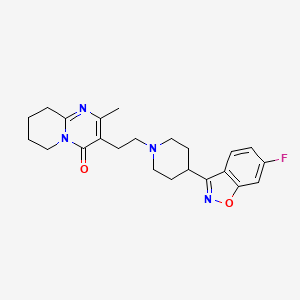Today, Laboratorios Farmacéuticos Rovi, S.A. (“ROVI” or the “Company”) has announced that the U.S. Food and Drug Administration (FDA) has authorized the marketing of Risvan® (Risperidone ISM®) for the treatment of schizophrenia in adults.
Risperidone ISM® is a prolonged-release injectable antipsychotic developed and patented by ROVI for the treatment of schizophrenia in adults, which, as of the first injection, provides immediate and sustained plasmatic drug levels and does not require loading doses or supplementation with oral risperidone.
This approval is based on the positive results of the pivotal PRISMA-3 study on the efficacy and safety of Risperidone ISM® in schizophrenia patients. The results obtained in this study show that the two different doses (75 mg and 100 mg once a month) have achieved the prespecified primary and secondary efficacy endpoints for treatment of patients with moderate to severe symptoms of schizophrenia. The primary efficacy endpoint, the PANSS total score (mean difference, CI: 95%), improved significantly with Risperidone ISM® 75 mg and 100 mg from the beginning until day 85, with adjusted differences of -13.0 (17.3 to -8-8; p <0.0001) and -13.3 (-17.6 to -8.9; p<0.0001), respectively, in comparison with the placebo. Significantly improved mean changes for the secondary endpoint, the CGI-S score, were also obtained for Risperidone ISM® in comparison with the placebo, -0.7 (-1.0 to -0.5; p<0.0001), for both doses, from the beginning until day 85. The significant statistical improvement for both efficacy results was observed as early as 8 days after the first injection. The most frequently reported treatment-emergent adverse events were increased blood prolactin (7.8%), headaches (7.3%), hyperprolactinemia (5%) and weight increase (4.8%). No important new or unexpected safety information was reported. Likewise, patients who successfully completed the double-blind period were offered the opportunity to continue in a long-term, open-label 12-month extension phase with once every four weeks injections of Risperidone ISM® (75 mg or 100 mg). New, clinically stable patients ("de novo" patients) were also able to enter this open phase of the study. Long-term treatment was observed to be effective, safe and well tolerated in adult patients with schizophrenia, regardless the initial severity of the disease or whether they had been treated previously with Risperidone ISM® during an acute exacerbation or switched from stable doses of oral risperidone. Likewise, Risperidone ISM® provided a swift and sustained improvement in functioning (both social and personal) and health-related quality of life. These findings, together with a quick onset of effectiveness, could help strengthen the therapeutic alliance and possibly lead to an earlier hospital discharge. Furthermore, the patient’s functioning either continued to improve or remained stable with long-term treatment.





